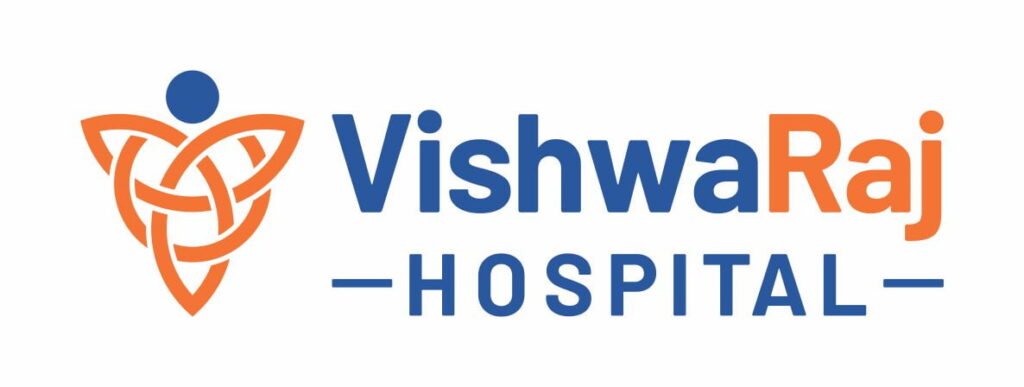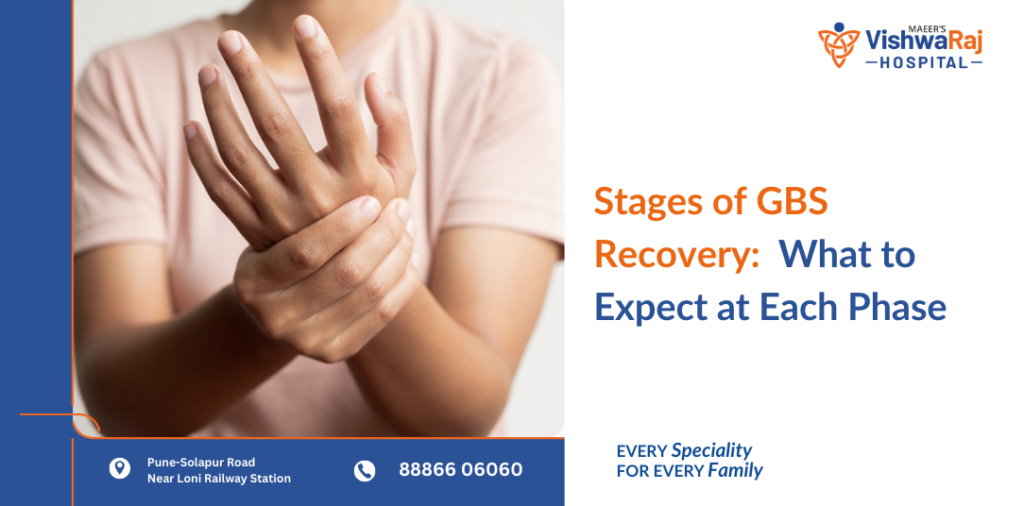Guillain-Barré Syndrome (GBS) is a rare neurological disorder that affects the peripheral nervous system, leading to muscle weakness, numbness, and even paralysis in severe cases. Recovery from GBS is a gradual process that varies from person to person. At Vishwaraj Hospital in Pune, we specialize in comprehensive care for GBS patients, ensuring they receive the best medical attention, rehabilitation, and support for a smooth recovery.
What is Guillain-Barré Syndrome (GBS)?
GBS syndrome is an autoimmune disorder where the body’s immune system mistakenly attacks the nerves. The exact GBS causes are unknown, but it is often triggered by infections, vaccinations, or other immune responses. Early diagnosis and GBS treatment can significantly improve recovery chances.
How Long Does GBS Recovery Take?
The recovery timeline for GBS disease varies depending on the severity of the condition and individual health factors. While some patients recover within a few months, others may take years to regain full mobility. Early medical intervention at Vishwaraj Hospital can help manage GBS symptoms effectively and accelerate the recovery process.
What Are the Stages of GBS Recovery?
Acute Phase: What Happens in the Early Stages?
- This stage can last from days to weeks, with GBS symptoms worsening rapidly.
- Muscle weakness, numbness, and potential paralysis may occur.
- Hospitalization is often necessary to monitor respiratory function and provide supportive care.
- Treatments like plasmapheresis and intravenous immunoglobulin (IVIG) are initiated to halt disease progression.
- Plateau Phase: When Does the Condition Stabilize?
- The patient’s condition stops deteriorating, but symptoms remain at their peak.
- This phase can last for a few weeks.
- The focus is on preventing complications such as infections, blood clots, and muscle stiffness.
- Patients receive intensive care and begin mild physiotherapy if possible.
- Recovery Phase: How Does Rehabilitation Begin?
- The nerves begin to heal, and symptoms start to improve.
- Physiotherapy and occupational therapy play a vital role in regaining mobility and strength.
- Adaptive techniques are introduced to help patients perform daily activities.
- Consistent monitoring at Vishwaraj Hospital’s Neurology Department ensures steady progress.
- Long-Term Recovery: What Challenges May Persist?
- Some patients may experience lingering symptoms like fatigue, pain, or weakness.
- Psychological challenges such as anxiety and depression may arise.
- Long-term rehabilitation, counselling, and lifestyle adjustments help patients return to normal life.
- Regular follow-ups and rehabilitation at Vishwaraj Hospital aid in long-term recovery management.
What Are the Best Rehabilitation Strategies for GBS Recovery?
- Physical Therapy: Improves strength, coordination, and mobility.
- Occupational Therapy: Helps patients regain independence in daily activities.
- Nutritional Support: A well-balanced diet aids in nerve repair and overall health.
- Mental Health Care: Counselling and support groups help manage emotional challenges.
Struggling with post-GBS recovery? Book an appointment with our expert neurologists at Vishwaraj Hospital today! – https://vishwarajhospital.com/contact-us
How Can You Support a Loved One Recovering from GBS?
- Provide emotional and physical support to keep them motivated.
- Assist with mobility aids like walkers or wheelchairs if needed.
- Encourage patience and resilience, as recovery can be slow.
- Attend therapy sessions together to understand their challenges and progress.
Conclusions
Recovering from GBS disease is a journey that requires patience, expert medical care, and a strong support system. At Vishwaraj Hospital, we are committed to providing world-class GBS treatment, rehabilitation, and ongoing support to help patients regain their independence. If you or a loved one is recovering from GBS syndrome, reach out to our specialists for personalized care.
Need expert care for GBS recovery? Contact Vishwaraj Hospital and start your healing journey today! – https://vishwarajhospital.com/contact-us
FAQs
Yes, many patients recover fully, but some may experience residual weakness or fatigue.
The acute phase lasts weeks, the plateau phase lasts a few weeks, and the recovery phase can take months to years.
Muscle strength returning, reduced numbness, and better mobility are signs of recovery.
Yes, physiotherapy plays a crucial role in regaining strength and preventing muscle atrophy.
Relapse is rare but possible. Regular medical check-ups help in early detection and management.
A healthy diet, regular physiotherapy, stress management, and proper sleep contribute to faster recovery.




